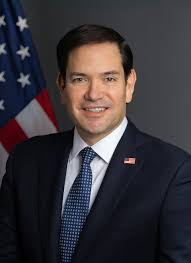Marco Rubio: A Look at His Political Influence and Current Initiatives

Introduction
Marco Rubio, the U.S. Senator from Florida, remains a significant figure in American politics as he navigates the complexities of governance and public policy. Known for his leadership on critical issues such as immigration, foreign relations, and economic reform, Rubio’s influence is pivotal, especially as the nation heads towards upcoming elections. His continued involvement in the legislative process reflects the dynamic political landscape of the United States, making it essential to monitor his activities and positions.
Current Initiatives and Legislative Focus
Recently, Senator Rubio has intensified his focus on national security and foreign policy, particularly concerning relations with Cuba and China. In light of escalating tensions between the U.S. and China, Rubio has proposed several measures aimed at strengthening the country’s defensive capabilities and protecting intellectual property. He emphasises the importance of a unified stance among allies to counteract China’s growing influence globally.
In addition to foreign policy, Rubio remains a vocal advocate for immigration reform. He continues to push for solutions that balance the need for secure borders with humane treatment of immigrants. In a recent town hall meeting, he reiterated his vision for a reformed immigration system that addresses workforce needs while also ensuring security. Rubio’s proposals aim to foster a bipartisan agreement on this contentious issue, which has significant implications for Florida’s diverse population.
Political Climate and Future Prospects
The political climate leading into the 2024 elections presents both challenges and opportunities for Rubio. As he navigates the complexities of party dynamics and public sentiment, he is likely to remain a prominent figure in the Republican Party. His previous experience running for the presidency in 2016 positions him uniquely to appeal to a broad base of voters, particularly among young Republicans.
Looking ahead, it is anticipated that Rubio will continue to advocate for policies that reflect conservative values while also seeking to broaden his appeal to independents and moderates. His ability to engage in cross-party collaboration may be a decisive factor in his political future.
Conclusion
Marco Rubio stands as a significant member of the U.S. Senate, with a focus on critical issues affecting both Florida and the nation at large. His ongoing work on immigration, national security, and economic policy will likely shape his legacy and influence in American politics. As the political landscape continues to shift, understanding Rubio’s initiatives and perspectives can provide insight into broader trends within the Republican Party and the government as a whole.









